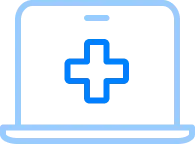Didactic Therapy and Addiction Counseling in MA
Facing addiction can feel overwhelming, but understanding what’s happening can help you regain control. At Rebuilding Recovery Center, we use didactic therapy to teach you the skills and knowledge needed to achieve lasting recovery.
What Is Didactic Therapy?
“Didactic” means educational or instructive. Didactic therapy teaches individuals about addiction, recovery, and mental health through easy-to-follow, structured group sessions. You learn how addiction directly affects you, including your mind, body, and behavior. This type of therapy empowers you by providing the tools needed to maintain sobriety and manage everyday challenges. Through guided discussions, you will:
- Learn to identify triggers
- Understand why cravings happen
- Develop practical coping strategies

Who Can Benefit from Didactic Therapy?
Didactic therapy helps anyone experiencing challenges with substances or addiction. It’s especially helpful if you want clear information about your condition and practical ways to manage your day-to-day recovery.
How Does Didactic Therapy Support Addiction Recovery?
This therapy teaches you about your addiction and ways to handle cravings. Learning coping strategies helps you feel more confident and strong in your recovery. It also helps reduce uncertainty around addiction by clearly explaining its causes and effects. This knowledge makes it easier to recognize early signs of relapse and build healthier habits.

Didactic Therapy vs. Dialectical Behavior Therapy (DBT)
Didactic therapy and dialectical behavior therapy (DBT) are often confused due to their similar-sounding names. However, they are different treatments with distinct goals. Both are helpful, but each therapy has its unique purpose in recovery.
What to Expect in a Didactic Therapy Session
In didactic therapy, you’ll join structured group sessions led by a counselor. These sessions are engaging and welcoming, giving you useful materials and opportunities to practice coping skills in a supportive space.
You learn important facts about addiction and skills to handle daily life in recovery.
Group sessions provide encouragement, shared experiences, and discussions that help everyone learn.
You will learn simple and effective ways to handle stress and emotions, making recovery easier to manage.
How Didactic Therapy Fits into Our Addiction Treatment Model
At Rebuilding Recovery, we use a holistic approach to treat addiction. This means we focus on your overall well-being, not just your addiction. Whether you’re participating in our full-day, half-day, or online levels of care, you’ll gain skills that help you face daily challenges confidently.

Our full-day program includes didactic therapy sessions to provide intensive learning and skill-building.

In our half-day program, didactic sessions help you learn practical recovery skills while still managing daily responsibilities.

We offer flexible online counseling sessions, making recovery education easy to access from home.
Learn More About Our Evidence-Based Addiction Treatment
At Rebuilding Recovery, we focus on compassionate, personalized care. We treat many types of addiction using evidence-based therapies tailored to your needs. Our unique “unreasonable hospitality” ensures you feel valued and supported. Contact us today to learn more about the substances we treat and the full range of therapies we offer.


Starting recovery can be tough, but you don’t have to face it alone. At Rebuilding Recovery, we’re here to support you at every step. Reach out today to start building a life you’re proud of: one filled with health, hope, and lasting sobriety. Our caring team is ready to help you rebuild your life with genuine warmth and expert care.
FAQs
What makes didactic therapy different from other types of therapy?
Didactic therapy focuses specifically on teaching practical knowledge about addiction and recovery.
Is didactic therapy only offered in groups?
Usually, it’s in groups, but individual sessions can also be arranged if preferred.
What topics are covered in didactic therapy sessions?
Sessions cover understanding addiction, coping skills, relapse prevention, stress management, and emotional regulation.
Can I participate in didactic therapy virtually?
Yes, we offer virtual didactic therapy sessions so you can join conveniently from home.
How does didactic therapy complement other therapies?
Didactic therapy provides basic knowledge and skills, enhancing the effectiveness of emotional and behavioral therapies used alongside it.











